I've lost confidence in my Architect…
The Highlights…
- For the past year, we have been working with an architect to design our retirement home
- The firm has been paid, step-wise, throughout the process and are now fully compensated.
- When bid for construction, it was determined that their design was nearly 50% over budget.
- Trying to “value engineer” their design back to our budget has been agonizing and time consuming.
- Removing nearly a third of the house has changed the look and feel of the design entirely.
- The architects have made most of the changes gratis, since a majority of the original design elements came at their insistence; overruling our concerns regarding budget and necessity.
The Problem…
Lately, I’ve been left with the impression that the architects have lost interest in this project. When I review revised plans for approval, I find sloppy errors and changes made without notification. When I raised concerns regarding a perceived lack of focus, I have been repeatedly assured that they are committed to seeing this house built. That said, they have also stated that they are only willing to revise, without charge, the drawings needed obtain construction permitting. (Does this include construction documents?… I don’t know)
I’m not really sure where to go from here. Throughout the project, the architects have failed to accept or simply acknowledge responsibility for numerous plan errors and missing our budget figure so badly. They have been paid fully and, in fact, still owe us a significant number of hours in construction oversight. Furthermore, I still don’t know if we have a design that can be built to our budget.
The whole experience has been terrible and we haven’t even broken ground. We are heartbroken to see the illustration of our original home design used to promote their firm in social media pages, knowing that the artwork cost me thousands; yet if I wanted an illustration of the revised design, they would charge me for it all over again.
Rather than being “on our side,” I feel that the architects have cast us aside for their next projects and that we can no longer count on them… except that we still need to.
Any suggestions?
Comments (77)
Charles Ross Homes
3 years agoI don't think providing construction contract administration services contributes any particular insights regarding cost; that's mostly an administrative function. The bottom line is what the contract price is to build a home as per the final approved plans and specifications. Except for cost-plus construction agreements, the contract price is known prior to the first shovel in the ground.
Architects don't build homes; they don't write checks for materials and trade labor and they don't know what price increases are coming next week or next month. If an architect designs only a few homes each year and those span a wide range of architectural styles, sizes, amenities and features they don't have a large nor useful cost database. For an architect to have a good handle on costs they would need to be designing a large number of substantially similar homes on substantially similar lots---say, for a production builder.
While builders should have a cost database, the challenge is similar if they only build a couple of homes a year and the homes are not substantially similar homes on substantially similar building sites.
Avoiding unpleasant surprises at the end of the design process requires getting a handle on costs early in the process. I don't know any better way to do that than to have a builder and his/her trade partners produce preliminary estimates as soon as a basic concept plan is available and update those estimates as design progresses. It's a collaborative effort of architect, builder and trades all working to achieve the clients' objectives. It is, admittedly, a different approach from the long promoted design-bid-build route, but you don't get better outcomes doing things they same way indefinitely.roccouple
3 years agoIF you are planning to continue with the build, In your shoes I might cut my losses with that architect firm. Find the builder among your bids in whom you have the most confidence (not the cheapest one) and ask what architects s/he knows who can design a house in your price range. And ask for a general idea about square footage your budget will support.
our architect didn’t design a house that was over budget in essence but there were some things that were impossible or needed change. the builder was more practical and focused on livability. At the same time the architect was invaluable in a cohesive design and making things more elegant, just nicer. I think that in our modest price range design was keyRelated Professionals
Ocean Acres Home Builders · Anchorage General Contractors · Country Club Hills General Contractors · Dardenne Prairie General Contractors · Davidson General Contractors · Groveton General Contractors · Hutchinson General Contractors · Nashua General Contractors · Palestine General Contractors · Plano General Contractors · Red Wing General Contractors · Rosemead General Contractors · San Marcos General Contractors · Sheboygan General Contractors · Stillwater General ContractorsJeffrey R. Grenz, General Contractor
3 years agoArchitects will call builders for current cost advice, but sometimes you'll need to pay for the consulting when there are exceptional items and the project is complex. I've seen too many unbuilt designs using wishful thinking cost data, becoming "resale lots."
If you goal is low bidders after the design is complete, you may be flying without a co-pilot. A builder who has built similar homes in the area would be best. If its a non-traditional construction type, find a builder with the appropriate experience.
Current cost data is imperative. Many prospects call me quoting numbers they heard from homes started 2 years ago when purchasing their property. Aside from normal cost increases, there are code upgrades, energy changes, and our current lumber crisis pricing (which should settle down in 2021).BT
3 years agoI do not blame an architect for going over the cost. Cost changes all the time and different subs charge different prices. Some structures have "high risk" to a GC because it requires very skilled framers and roofers, so obviously he wants to pad. Sometimes customers are high risk that can not tolerate even slightest misalignment (e.g. demanding electrician to realign all electrical outlets covers because they are 1/16" off or redo garage section because of a bug got stuck in the garage epoxy ).
Don't be stupid and bring a builder to meet with your architect.Mark Bischak, Architect
3 years agoSBDRH - Most times my client will inform me of their budget number or range. Sometimes it is not an issue. My practice is in a unique area.
Shead - My comment was based upon how architects historically have gained the knowledge of construction cost through being involved contract administration, where an architect will review billings and approve payments. Few people want to pay their architect for services they do not see as necessary. The home owner sometimes has the same handle on construction costs as an architect does.
bry911 - It is not self inflicted. I offer construction contract administration for my project, but nobody wants it. Administrating construction contracts is where architects obtain knowledge of construction costs. Maybe I should make it mandatory for my projects, that way I can lose the entire project. I was going by the dictionary's definition of libel, not what a guy wearing a black dress ruled (you're not a judge are you?).
The OP should communicate their concerns and reasoning to their architect and work it out with them.
bry911
3 years agolast modified: 3 years agoIt is not self inflicted. I offer construction contract administration for my project, but nobody wants it.
That is not the problem I was addressing. There is often a goal alignment problem in architectural contracts. That is not to say it is the only problem but much of the resistance to modify business models is a refusal to see any problem with the existing business model. Which, to be fair, probably has a lot to do with the focus on commercial design rather than homes.
Administrating construction contracts is where architects obtain knowledge of construction costs.
I am a cost accountant, I can cost out things that I have never seen and never seen made that are a heck of a lot more complicated than a house. I have faith that you could pull it off if you were motivated to do so.
I was going by the dictionary's definition of libel
Which dictionary? Libel is written defamation about someone. Or you might characterize is it as writing something that is untrue and damaging about someone. Writing something that is untrue and damaging about a profession is not libel because it is about some group and not someone. Saying lawyers just want to steal your money is not defamation... Saying that a particular lawyer stole your money is defamation (unless he actually did).
-----
There is this false narrative that an architect would need to spend a giant amount of time tracking costs in order to properly estimate costs. That is not the case. That largely comes from a misunderstanding of cost drivers. Every day people who have the same type of feedback about material and labor costs manage to design products within fairly strict targeted cost points. That is because they understand cost drivers rather than specific cost information. Architects can learn this information and some will...
Daniel-J
Original Author3 years agoAs I read through the responses, indulge me with the following (generalized) observations…
Clients: We trusted the architect to design a home we could afford… they were paid and now we have a design that we can’t build.
Architects: It’s not our fault… you can’t expect us to know construction costs. Besides, our clients have unrealistic expectations.
Builders: If we were hired early in the design phase… we could have tempered expectations and insured cost limitations were met.
Here are my comments regarding these positions...
Clients: I need to stress that I did my best to become an educated client. Still, perhaps I could have understood local construction costs more fully prior to this undertaking. It needs to be mentioned, however, that when I interviewed both architects and builders, I discussed my budget and, to a person, I was appeased and told that my budget was feasible.
Architects: Why is it that the client first hears about the architect’s inability to forecast construction costs or design to a given budget - AFTER - the design is completed and the firm is paid? I think I know the answer. It’s because they wouldn’t have any clients if they led with…“We take no responsibility for the construction cost of this design. You are paying us for a beautiful design… not its ability to actually be built by our client. If you can’t afford to build our design… it’s your own fault; we will use it to promote our firm regardless.”
Builders: I agree, mostly, with the builder’s position. Nonetheless, I imagine that it is difficult for most clients to choose a builder without initiating a competitive bid. This is reinforced by the architect who often encourages the “Design - Bid - Build” process.
The biggest lesson I take away from our experience is that utilizing an independent architect is a huge and costly mistake. The architect may promote their firm as being “on your side” but, as evidenced by the comments of some architects on this site, they ultimately blame the client for (well) mostly everything. Blamelessness is an easy position to take, especially if you’ve already been paid.shead
3 years agoIf I were going to seek an architect for a building project, I would ONLY use one part of a Design Build firm for the very reasons you stated, @Daniel-J. You hit the nail on the head. I'm going to try to save the link to this thread for the next time someone is encouraged to seek an independent architect.
Truly, the first piece of advice anyone should be offered is: Have you talked to a builder? and not Have you hired an architect?Charles Ross Homes
3 years agoI really value the OP's perspective and thank him for taking the time to share his experience--it benefits professionals and prospective clients to the extent they choose to learn from it.
To be sure, the design-bid-build model is deeply entrenched. It has long been promoted by architects looking to sell a large, detailed set of plans. The selling proposition is that, armed with a highly detailed set of plans, a good outcome is pretty much guaranteed, irrespective of the builder hired. Thus, you can hire your builder on price. I don't buy services based on price--whether it's a haircut, an accountant to prepare my tax return or an attorney.
I'm glad to report architects in our area are embracing changes in their processes. One won't take on a residential design project without the builder involved from the outset. As I stated earlier, you can't expect better outcomes if you keep using the same (flawed, at least in my opinion) process.
You don't have to commit 100% to use a particular builder to benefit from their professional expertise in the pre-construction phase. You shouldn't, however, expect a builder to provide free consulting services either--unless your architect is providing free design services. One option is to compensate the builder for their efforts while maintaining the freedom to either choose someone else or walk away from the project at completion of design. Builders who do this will often have a pre-construction services agreement which outlines the services to be provided and the cost. Some builders may credit back a portion of the cost against the contract price to construct or remodel the home.
Changes in building codes coupled with a steady stream of new construction materials and methods make residential design and construction more difficult than it was even 10 years ago. In my view, the best project outcomes are produced by teams which include design and construction professionals who respect each other's contributions and genuinely like working together. I know some architects here on houzz work that way and both they and their clients are better off for it.Mark Bischak, Architect
3 years agoMany architects have a handle on construction costs, unfortunately construction costs change and vary for a multiple of reasons; and there is a time lapse between when costs change and when most architects are not made aware of them. And we only hear about projects that have gone wrong.
That said, some architects want to have their client build something super cool and do not know how much it will cost or perhaps even care.
Perhaps the best case scenario would be to hire the architect first to create a preliminary design, then bring the builder on board to refine the cost estimate and become part of the design team. I assume the builder would like some type of drawings, base on the owner's needs and site, to base their estimate on in everybody's best interest.bry911
3 years agolast modified: 3 years agoWhy doesn't the home owner learn this information?
You thought the most appropriate response to understanding cost drivers in design is to offshore that to the client. Fine, can you explain how the design process would work then? Your client would need to set beside you every time you worked on their design to point out the cost ramifications of your latest inspiration.
Everyone who designs for a living, from computer scientists to marketing professionals, does so with a target cost or price in mind. Architects abdicating any responsibility for that, is ridiculous. I don't care what hardship you are using to rationalize it, if your clients are not engaging your design supervision services then the onus is on you to find a different way to obtain that information. Seriously... I can't do my job correctly because people will not pay me to obtain the knowledge required for me to do my correctly is a sad excuse.
I think I will try that one too... Hey, sorry you lost your entire retirement savings on the sketchy investments I put you in, it really is not my fault though, too few people pay me to manage their portfolio so obviously you can't expect me to stay up to date on the financial ramifications of the products I recommend. But look on the bright side... I lowered your tax burden from investments just like you asked!
Architecture students, juggling a full graduate school course load, with almost no real experience tackle affordable house designs. They do so by making an intentional effort to understand cost drivers. I suspect much of it depends on their vested interest in success. Again, I have every faith that you, with your years of experience, could outperform a small group of college students if you too had a vested interest in it.
D B
3 years agoI do in-house design-build for most of my customers. I also build plans produced by outside sources that my customers bring forth. I have seen all levels of quality of design from these outside sources. Many plans are ridiculously designed with no effort for efficiency, but some are beautifully designed to the clients desires without waste. Architect/Designer EGO is a real thing, it hurts the whole process and focuses on what the professional wants the project to be and not what they client wants or can afford. I've read Mark's posts for years and I feel like if one of his plans came across my desk I'd be delighted. However just like any field, bad apples exist.
There are bad builders, bad in-house designers, bad architects, and bad customers. It is the job of the homeowner to evaluate each to choose the best. Sometimes you have really talented professionals that cannot design to a budget. Easier said than done.
The best way to predict the future is to look at the past. See samples of the builder's previous projects as stated earlier in this thread to determine a general budget for your project. As a rule I do not share guesstimates for projects, I will only share previous projects and speak to how they compare to the project in question. The same can be done with an architect, ask for a set of plans (to borrow) that fell somewhat within the proposed budget of that project and show them to your builder. If he/she thinks the plans and budget make sense then the architect probably is a decent budget-limited designer.
It is vital for the designer/architect to know your ACTUAL budget. It helps but does not insure a within budget outcome. Architect often have wider geographic ranges and experience vastly different construction costs. Plus, as mentioned above, they are not often brought into the build process so they don't get the experience needed to accurately predict pricing. It's easy to sit back and laugh at their attempt to hit a budget, but in reality, it's not easy.
As a client you have to be willing to hear what the professional is telling you. Did they say "Ok, but that might put you at a higher price than you hoped for" or something along those lines? I had a customer come in with some internet plans recently that actually looked good. The house was easily over $400k at a glance, and probably more. They had a 250 budget. Times like these that you have to be blunt or the message will not come across, but not all professionals are capable of being so brash to get the message across.
Good luck with your project.roccouple
3 years agoi don’t think that architects should be expected to anticipate sudden changes in the labor market or scarcities due to global pandemics. But in cases like the op where they are off by 50% or more, that’s just ridiculous. I feel like in my town I could look at plans and ballpark their cost better than that with no training!
our architect did design us a house within a reasonable margin of our budget. So maybe many do that. I think that licensing agencies should maybe be involved to hear disputes of this kind. certainly they should provide guidelines or best practices in that area.Mark Bischak, Architect
3 years ago"Everyone who designs for a living, from computer scientists to marketing professionals, does so with a target cost or price in mind."
No they don't.
bry911
3 years agolast modified: 3 years agoYes, they do! Do we want to keep playing this game or would you like to give an example of someone who doesn't?
Mark Bischak, Architect
3 years ago"They do so by making an intentional effort to understand cost drivers."
No they don't.
Susan Murin
3 years agoWow, I am finding this discussion discouraging. I really don’t understand how an architect could be so divorced from costs and still meet the needs of clients. The architect I’ve used charges a % of budget so the cost of project ties directly to his fee. I would think that when someone comes to an architect and says ‘I want to build an X square ft home and my budget is Y’ that that defines the project. The architect should know that construction in area with mid-range finishes averages Z$/sf and advise accordingly, as in ‘what you want can’t be built for that budget’ or ‘that’s doable with stock windows and doors, no basement, lower-level finishes, asphalt shingle roof, etc but if you want higher end finishes we will either have to reduce the dwelling size substantially or increase your budget’. Without that kind of knowledge and dialogue the process is untenable.
Mark Bischak, Architect
3 years agoAs I stated before, "Many architects have a handle on construction costs". It sounds like the OP's architect may not, and is a rare case where the focus may be on architectural grandeur and not meeting the client's needs.
Daniel-J
Original Author3 years ago
Tell me about it…I wish I had the benefit of finding/reading a thread like this a year ago. I mean what other industry operates this way?
Imagine you are getting married and want a wedding cake. You schedule a baker and discuss your ideas for a beautiful cake. One thing however, you are allergic to strawberries. “No problem!” says the baker.
You pay them upfront and patiently wait for the big day. On your wedding day, you go to pick up the cake, only to discover strawberry jam used as the filling.
“I CAN’T EAT THIS!” you cry.“We’re sorry,” says the baker… “but it’s not OUR fault. How were we supposed to know that there are real strawberries in the jam. We can’t be expected to keep track of the ingredients that every jam manufacturer uses. Besides you had unrealistic expectations. You said you wanted beautiful cake and everyone knows beauty = strawberries.”
“What am I going to do?” you plead…“We’re committed to making this right.” they say… “We’ll scrape off the icing, remove the cake, strip out the filling and plop the cake back on its bottom layer.”
“But what about re-icing the cake?” you ask.“We’re afraid we’ll have to charge you for that.” they say… “After all, you don’t, technically, NEED the icing and you did just order a ‘cake’.”
Sounds crazy, right?!Welcome to my world right now...
bry911
3 years agolast modified: 3 years agoI am struggling to accept some of these defenses...
If compensation for design services was tied in some way to producing designs that could be constructed reasonably close to the budget, a miraculous number of architects would discover how to produce designs reasonably close to the budget. I believe that to be true because there is an absolute mountain of evidence and data that supports it. We know what happens when you tie goals to pay, things that were impossible before suddenly just work.
Customers shouldn't have to do due diligence to prevent fraud from a licensed professional. I don't know what else you could call taking money from someone knowing they have a budget of X and producing a plan that is 1.5 times X. If this were a commercial transaction customers would be protected by the warranty of fitness for a specific purpose, but because it is a service, contracts can indemnify architects. It is sad that a cabinet salesperson has to provide cabinets that meet a client's stated goals but architects don't.
I further believe that an architect can reign in a customer's desire when it blows the budget. I do a lot of financial and retirement planning and if you think people have strong opinions about their house, try talking to them about their money. Do you know how many people walk into my office hoping I will modify or rubber stamp their bad financial plan? I would guess it is close to 80%. Do you know how many times in my entire career I have developed a bad financial plan for someone because they pressured me to? ZERO! I can't make people follow my plan but I can be certain I create a plan that addresses their needs. So I struggle to accept that an architect can't keep a client within 150% of their original budget.
bry911
3 years agolast modified: 3 years agoThree excerpts from Mark Bischak, Architect:
As I stated before, "Many architects have a handle on construction costs". It sounds like the OP's architect may not, and is a rare case where the focus may be on architectural grandeur and not meeting the client's needs. [emphasis mine]
Many architects are unable to have a good handle on construction costs because previous clients have not engaged their services for construction contract administration. [emphasis mine]
I offer construction contract administration for my project, but nobody wants it. Administrating construction contracts is where architects obtain knowledge of construction costs.
-----
So give me some rope here, but if I understand what you wrote, not having a handle on construction costs is rare, but affects many architects. The only way to get that construction cost information is through construction administration services, which you personally offer but nobody wants. I am just going to leave that inference alone.
I personally suspect that architects spend too much time defending their profession against people who wrongly don't see the value and sometimes they rush to defend architects who shouldn't be defended. I hope that the architects who participate here don't actually engage in this, they just get a little zealous in their defense of architects.
Mark Bischak, Architect
3 years agoYour claims are full of unsubstantiated generalizations and paraphrasing or mimicking of what I have written is misleading to others. Not all architects are the same. Financial planning is different from designing buildings, and applying the rationale of one to the other is, in your word, ridiculous.
If you would like an example of someone who doesn't design with a target cost or price in mind, that would be me. I have had several projects where my client does not have a budget limit. They want a home that they want and have the means to pay for it. There are times when budget plays a big part in the architectural process.
And again: Perhaps the best case scenario would be to hire the architect first to create a preliminary design, then bring the builder on board to refine the cost estimate and become part of the design team. I assume the builder would like some type of drawings, base on the owner's needs and site, to base their estimate on in everybody's best interest.bry911
3 years agolast modified: 3 years agoYour claims are full of unsubstantiated generalizations and paraphrasing or mimicking of what I have written is misleading to others.
Saying that all designers design to a cost goal is not a generalization, saying owners want to spend as little money as possible is a generalization. I can support the difference if you need.
As for paraphrasing...In the above post, I copied the complete excerpt from your text, and in each case you moved on to a different point (the first was copied in full, the second you moved on to a generalization about owners spending money, and the last you moved to an assertion about a better way to provide services). Was there something specific that you feel I didn't capture?
If you would like an example of someone who doesn't design with a target cost or price in mind, that would be me. I have had several projects where my client does not have a budget limit. They want a home that they want and have the means to pay for it. There are times when budget plays a big part in the architectural process.
I didn't say that every project always has a budget restriction, I simply said everyone who designs for a living does so with a budget in mind. Did you really believe I was suggesting that every project ever imagined by a designer had to be designed with a budget in mind? You could refute that by sketching a small home floating above Mars...
Have you ever been engaged to design a structure where the budget was a known constraint? Can you name any design profession that doesn't regularly design to a budget constraint? Do you believe that you have no responsibility to that constraint once you know it?
Financial planning is different from designing buildings, and applying the rationale of one to the other is, in your word, ridiculous.
I will argue that any agency relationship deals extensively with the same issues and while there might be differences in the product or service rendered, fidelity to the client should remain a constant. Whether it is a doctor creating a treatment plan, an accountant creating a tax plan, or an architect designing a home plan, reliance on the engaged expertise is implicit in the relationship and should absolutely be a duty.
Mark Bischak, Architect
3 years ago"All designers design to a cost goal" is a generalization and it can not be substantiated.
I was not talking about the "above post" you referred to, I was talking about a previous post up thread that mimicked and distorting my point; which the comment seems to have disappeared.
What I really believed is what you wrote, "Everyone who designs for a living, from computer scientists to marketing professionals, does so with a target cost or price in mind."
As far as deigning to a budget, I already address that.
The "agency relationship" you bring up is unrelated to what I was talking about in the application of rationale thinking. But the fact that you have brought up the separate topic illustrates the different thinking paths. You nitpick at my comments without regard for the comment I am responding to, taking it out of context and attempting to attacking me with it. I refuse to play your game any longer. Go attack someone else.
roccouple
3 years agolast modified: 3 years agoi wonder if you could file a complaint with the architects licensing board. What this architect did feels like “unjust enrichment” to me. I am sure language in their contract protects them from any such claim. But they essentially had the op pay them to create plans to promote on their website. What are the odds this firm is going to give them plans for a house they’d want to live in? Pretty low. I wonder if some richer client will build the ops house and live in it.
I am sorry to the op. I don’t think all architects function that way but clearly some do. would report them to the board and leave bad social media reviews. You (op) have a way with words and that Might actually have an impact
just_janni
3 years agoStunning.
We continually discuss the need for architecturally decent houses to be built on this forum. We lament the production builder and the bad design that gets accepted into the vernacular. We push people to use architects to get a design suited to their site and their needs. We continually ask "what does your architect say" when people ask for advice. We tell people that an architect will WORK FOR THEM and create a better product in the end.
If we believe this, we also have to hold architects accountable for designing houses that CAN BE BUILT by the customers we send them!
It's not all architects that can't hit a budget target, but if we want architects to be included in more designs, we have some solve some problems with the way folks engage with architects, or solve some of the known inhibitors. It's not like this is a situation is all that rare. If this were the first or second time we'd seen this situation - we would ALL push back on the OP. But it's not.
As professionals, maybe include costing services in the fee and partner with a builder - that way a reasonable estimate can be included (NOT A BINDING QUOTE) but something that sanity checks costing for a client and, also possibly can make a connection. Architects should have a decent relationship with a / some builders that they know can execute their designs well - so it cold be helpful.
Depending on what the local market is - it might be harder for a client to find a builder than it is an architect...
I guess I am confused about the reticence to address a problem, and instead blame the customer - who is the least experienced party to this endeavor.bry911
3 years agolast modified: 3 years ago"All designers design to a cost goal" is a generalization and it can not be substantiated.
Words have meanings...a generalization is an inference from the particular to the whole. In other words a generalization is observations or experiences applied to the whole either correctly or incorrectly. If you make a statement about the whole that is based on a theory or understanding that doesn't come from experience or observation that is not a generalization.
For example, "owners want to spend as little money as possible" is a generalization because you are inferring something about the entire population based on your experience (you could even add the phrase in my experience). Saying, "all designers design to a cost goal," is not a generalization. I am basing that on an understanding of the goals of hired design and money as a medium of exchange. You might argue that my assertion is incorrect, but it most certainly is not an inference and therefore not a generalization.
Furthermore, there is nothing wrong with generalizations, the entire scientific method is based on generalizations. It is just using observations to make a statement about the whole and most of the modern world is based on it. I believe you meant to say that I was making a gross generalization, that word gross is important because it then claims the inference is false, adding the word sweeping would call into question the number of observations being used to form the generalization.
Note: you state I am nitpicking when you use two houses that you designed to refute a statement about the prevalence of budgets as a constraint in design...
----
The "agency relationship" you bring up is unrelated to what I was talking about in the application of rationale thinking. But the fact that you have brought up the separate topic illustrates the different thinking paths.
You actually brought up the agency relationship when you said, "It sounds like the OP's architect may not, and is a rare case where the focus may be on architectural grandeur and not meeting the client's needs." So I don't accept that we are talking about different things. A violation of the agency relationship is anytime that there is an expectation that a professional will act for the client's benefit but they instead act for their own benefit, I simply applied the proper term to the phenomenon that you were discussing.
Charles Ross Homes
3 years ago@titomilian,
I'm not nit-picking semantics, but in order to solicit "bids"-- which are firm proposals to execute a particular scope of work-- you'd need fully detailed plans and specifications. What you'll get based on "conceptual drawings" are estimates of what it is likely to cost once all the details are specified. The quality of each estimate depends on the amount of information contained in the conceptual drawings and how much time a remodeler is willing to invest to produce a (presumably free) estimate. Proceed with caution.Daniel-J
Original Author3 years agolast modified: 3 years agoI want to thank everyone who has taken the time to comment on this thread. It’s extremely informative to read perspectives from builders, architects and clients such as myself. I especially appreciate Mark’s (Mark Bischak, Architect) perspective. While I don’t entirely agree with it, or even fully understand it, at least he’s offering me some insight on the profession.
As the OP, I’d like to try and (gently) steer the conversation back to my situation and what my options are.
The Problem:- I have paid for a design that I can’t afford to build
- The architects have been paid but, for obvious reasons, not yet accrued their hours of construction oversight
- The firm has committed to “making this right” (though, what this means, seems to shift)
- Thus far they have taken several stabs at reworking the original design and I am awaiting a build-cost estimate for the latest version
- Despite their repeated words of focus and commitment, I can’t help but feel that they are simply “phoning it in.” Both I and the builders find sloppy errors in their revisions… drawings in their plan that pertain to the original design, rather than the new one… and when I suggest the need for an elevation or two to accompany revised room plans, I’m told that “it’s not necessary” and will cost extra.
- To my mind, this latest version is my Waterloo, at least with the original design as its basis. Nearly a quarter of the house has been removed as well as an element or two I really wanted but could, ultimately, live without.
The Solutions:Thus far, the suggestions seem to center on (I’m paraphrasing)…
- Talk to the architects and and try to work out a win-win solution.
- Cut your losses and start over; utilizing a builder as the conductor of this ‘orchestra.’
Now, one by one…- Talk to the architects and and try to work out a win-win solution.
Well, of course I have tried (and will continue) to do this. It’s worth repeating…- A budget was clearly established early… it was unwavering and often repeated.
- The architect specified very expensive selections and design features, either without my knowledge or by dismissing my budgetary concerns/objections. "But it will look beautiful!" they said... "It won't be too expensive." they assured us... "We can always take it out during the VE process." they reasoned.
Finally, these architects are masters at gaslighting. In one note I’ll write…
“I really appreciate your willingness to see this project through to the end… etc.”In their response, I’ll read…
“I hope you can appreciate all the work we’ve done on your behalf… etc”
Ughhh… how can you reason with this? Not once have they accepted an ounce of responsibility for their role in the mess we’re in. Admittedly, there’s blame to go around, but thus far, they are the only ones to be paid - a lot.- Cut your losses, and start over; utilizing a builder as the conductor of this ‘orchestra.’
This may be my only option, short of selling the lot and purchasing a ‘built’ home. Knowing that I have spent a small fortune (for me) on a design I can’t afford to build is infuriating. Then, seeing our dream home promote their firm yet knowing we can’t build it is a slap in the face.
Am I missing something... are there any other options?
Should the wheels completely fall off this project... does filing a complaint with the board actually accomplish anything? (I have my doubts)bry911
3 years agoI don't know what your options are but I fear none of them are good.
I would advise working with them until doing so is no longer to your advantage. So long as they are working towards a viable solution without charging you, then that is probably to your advantage, although don't invest time if a viable solution doesn't seem possible. Once they begin charging you, do the math... Don't spend money chasing fairness, spend it chasing resolution. It isn't fair that you may have to pay this company more money but if your cheapest and best option is paying them more money then do so.
I would struggle advise on a formal complaint, but you might consider a conversation with the office of your state's attorney general. Most attorney's general will have a consumer protection division and in my experience a letter from them notifying the firm that a complaint for fraud has been filed tends to aid resolution when other methods failed. I would advise not considering that until the relationship was terminated and realize that a single complaint doesn't have a lot of teeth, but it is still pretty scary and can help resolve things.
bry911
3 years agolast modified: 3 years agoI love what architects do and I hate the way they do it. I feel strongly that the widely held perception of architects is due in some part to a failure of the AIA to consider the ramifications of their advocacy. Specifically, they spend so much time advocating for protections for individual architects that they fail to see the damage that protecting poor outcomes does to their entire profession. This thread is a great example of this, the OP is largely powerless to get a satisfactory resolution and because of that posted here, how many people will read this thread and be wary of engaging an architect?
In my opinion, architects need to be upfront about their ability to hit budgets. If an architect takes money with a budget constraint, implicit in that, is their ability to reasonably hit that budget. If they don't know cost well enough to be confident they can hit that budget then they need to disclose that at the beginning.
I find the defenses offered here particularly frustrating. It is deceptive to accept projects with a budget constraint and then rationalize a fraud by saying that architects can't be expected to understand the cost of building a home. It doesn't matter why an architect doesn't understand cost, it only matters that they knew they didn't understand cost when they accepted the project.
I also believe that I could teach an architect to consider cost drivers in their design in two college courses. I know houses look complicated but I assure you from a cost perspective they are really not (a jar of peanut butter would be more problematic to cost). With a bit of training and effort, an architect could identify costly items as they are designing a house, this is specifically the synergy that design build firms exist on.
---
I wish the OP the best.
Daniel-J
Original Author3 years agoThe latest revisions are with our preferred builder. Knowing the fiasco this has become, I trust that the builder is developing a very careful estimate of the plan’s build cost.
If the estimate fits our budget, we’ll move forward with the builder; asking for a formal bid.
If that bid comes back in our budget... we’ll sign with them.
Virgil Carter Fine Art
3 years agoDo you understand the diffferences between an "estimate" and a "bid"? Estimates are just that: an estimation of the cost of construction. The accuracy and completeness of an estimate depends entirely on the amount of time and work a general contractor may wish to give or not give to the project. A bid is a sum for which the general contractor is willing to sign an owner-builder construction contract and begin work.
The other issue for you to understand is the type of proposed construction contract. Terms and conditions of each type differ. Generally speaking there are three types of construction contracts: lump sum (or fixed price); cost plus; and time and materials.
Be very careful when it comes to any allowances which may be included in a proposed construction contract. Allowances are frequently low balled and not suffficient for providing for the actual desired quality of an item. Minimize allowances to the maximum, as in NO allowances.
Good luck!Golden Girl
3 years agolast modified: 3 years agoI'm going through the same exact problem right now. Trying to value engineer plans that came in at twice my budget. It's simply amazes me that this is the norm and there is nothing in place to guide this process or to protect the homeowner. I'm with bry911 - If an architect is that far removed from the cost of building they should state it up front and design accordingly. Don't insist on fancy architectural features, and/or make unilateral decisions about design because it is what they like and not what the homeowner even wants. (That is what happened to me.) If this experience is so common in the industry, architects must be aware of these pitfalls going in, right? Yet the stories keep coming. I'm sorry, but there's no good excuse for this.
To architects - don't front and act like you know about costs and budgeting if you don't. Say you don't know. Accommodate your clients' design wishes, not your own overly expensive desires. At the end of THAT day, the client will have to live with and pay for their own bad design decisions, not yours.
Golden Girl
3 years agoNow that I've gotten that off of my chest, lol, I want to give feedback to OP. I still owe my architect money, maybe that's why they still seem invested in the project. However, I must admit that they did suggest that I sell the lot. They obviously recognize the err in their ways.
At any rate, I've been fairly successful with the value engineering exercise. Really looking at the details of the bids have given me insight into the "fat" on the project. For instance, there was an electrical item, a feeder switch that was coming in at $30,000. After doing some research on it, I found out that the electrical engineers spec'd a feeder switch that could support a 30 unit apartment building! Turns out I only need a couple of breaker panels which costs $2000 tops. Long story short, I've had to learn-up on these details myself and nurture relationships with the builders to get insights on overly expensive structural items as well as finishing materials that can be replaced by more reasonably priced substitutions. Scrutinize your plans, if you don't understand something question it. Google it! It's what I am doing. I think I'm approaching striking distance of my budget. I'm currently waiting for a scaled back plan from my civil engineer. Not there yet, but I feel like there is some hope.
noreaster10
3 years agoInformative thread! We did a major renovation involving architects in a design-build situation about 4 years ago. Which is simply to say I have some exposure to this issue. My question after all of this thread is what on earth the disconnect was that would cause it to be so far over budget? Again, I am not any kind of professional in this industry but I can only imagine what was drafted that was so off kilter? I agree that it is terribly insensitive and unprofessional to design a house that a client couldn’t afford knowing the budget up front. While true an architect may not know how much tile costs per square foot or what materials a client wants in the house but if they know the overall budget, lot size and style of the house, what went awry? Xxxx square feet of house at x price point will generally be finished out with x grade materials. I would think an architect, who specializes in residential architecture, would at least be able to say, mmmm, based on what we have done in the past year or two, your goals seem unrealistic. I would never want to be so divorced from the industry to design something no one could build! What is the biggest budget item in a build? I think I recall lumber being a chunk. Is lumber twice as a much as the architect thought? Is the house built into the side of a mountain or something equally unique/expensive?
I wish the OP the very best. The feelings of powerlessness are the worst. I hope a positive resolution came about and your dream house is in the works! Shore your resolve for the building process as that is usually disappointing in some respects too. 😕JJ
3 years agolast modified: 3 years agoI wish I had seen this before. We went through this exactly! Where to begin...I will try to be brief.
- Our house got built. Yay. Substantially the way the architect drew it. It was an ugly process and I feel bad about that.
- Don't let your emotions get the best of you. My husband got really upset, and he ended the relationship with the architect which was not in our best interests. It cost us the ability to have the architect be a resource for our builder and consequently there were some decisions made that had a negative impact on the design.
- If you have an AIA style contract, I believe they want the architect to come within 10% on the cost to build. And make any changes without additional charges to bring the plans to within this range.
- Yes, gaslighting is endemic in this industry. Well, in the whole country. But don't fall for it. Keep emotions in check.
- We did not want to have the "architecture" value-engineered out of our home. But in retrospect, some of those architectural features are just miserable maintenance headaches. I don't say anything to my spouse but really, I kind of wish I wasn't crawling around on flat roof sections, or hanging from "butterfly wings" or oiling cedar detailing every 2 years. Be smart.
- We ended up building to within 10% of our final budget, though our budget had expanded during the first phase of the design process. But this took a lot of work on my part when I assumed responsibility for the project when the relationship with the architect went south,
It has been 5 years and we are still REALLY SORE about the whole process. I am just now putting together a list of a few things that we need to have "fixed" and I will probably engage our builder (who we are friendly with) to complete them. Some things that we engineered out cannot be fixed, not without a lot of expense. So be careful with that. But all in all, our home is pretty nice.
I would go for the win-win with the architect. You really do want him or her to be available to consult. You just don't know what you don't know.
Let me close with this: First-time-Last-time clients are, I think, the architects bread and butter. You work for decades, buy existing homes or tract homes, care for your family, save up money, and then you go to design your "dream home." (Never use that term. Forbidden. Dream home or forever home. Just don't say that.) You are an easy mark. Even if it is not so blatant. You don't have a sense of your value to an architect. The AIA "percent of the build" contract is a dream contract for the architect. So get the value you paid for.
If you have any questions just ask. For some reason my old profile is gone and I have like 6 ways to sign in to this forum so sorry about that.
J
Daniel-J
Original Author2 years agoI suppose, after 7 months, it's worthwhile to offer an update - We are under construction with a builder we trust.
I wish I could say that things have progressed without a hitch, but they haven't. Many more errors have been found within both the architectural and structural plans. Unfortunately, since a few of these were not caught prior to construction, there have been delays, difficult decisions and rework.
We feel that our builder has been up-front regarding the issues; taking responsibility when the cause was their own and explaining where they occurred when it wasn't. Other than time, we haven’t lost anything out-of-pocket.
While most of my ire is reserved for the architects, with their sloppy work and inattention to detail; part of my frustration is with the builder and stems from the fact that, a couple of the problems weren’t discovered by them proactively. Rather, they were found by me visiting the site and approaching the project manager to say “This doesn’t look right.”
As I mentioned, however, the builder has been quick to assess any problem and own it - if it was their fault. That means a lot to me. They have also represented us in communications to the engineers and architects; acting as mediator to resolve issues to our satisfaction. Knowing our feelings toward the architects, he suggested this role for his firm early on.
That said, we haven’t had much interaction with the architects. Fortunately, our “vision” for the house is pretty well flushed out by now. Despite paying them for construction oversight… it’s clear, given the errors I have found, that this isn’t happening. Besides, their ability to spot errors (even within their own work) has proven to be inept. True to form, they haven’t taken responsibility for any of the build issues to date (or for not spotting them). However, when plans needed to be corrected, at least I wasn’t charged.
We are still 9-10 months away from completion; due, in part, to material delays. Being our first custom home, seeing the process move from paper to footings & framing has been emotional and stressful. Sometimes I think it will be better than we envisioned… sometimes I wonder whether the experience has jaded me against the home entirely. We will see but I hope that, as the house becomes more finished and closer to our imagined vision, we will be happy.JJ
2 years agolast modified: 2 years agoMy first time reading your saga. Many similarities to our experience. I won't go into it.
I has been 5 years plus since our home was completed. Some of the bad feelings fade. We have a nice house but I dont love it. Thats fine. I havent been deeply wounded either. Water under the bridge.
Would I hire the architect again? Not to build a new home. I might hire him to fix some things here if we decide to stay.
Would I hire the builder again? Yes.
roccouple
2 years agoDaniel j. I’m sorry for continued problems. Thanks for the update. I hope in 9-10 months you’ll see your own vision and forget the rest. Hopefully you csn make the place your own
Mark Bischak, Architect
11 months agoI hope this is one of those " . . . and they lived happily ever after" projects.
HU-935853400
12 days agoThe emotional rollercoaster you’re experiencing is quite common among those who undertake such significant projects. The anticipation, the setbacks, and the triumphs are all part of the story of your future home. As you continue to navigate through the construction, remember that each step brings you closer to realizing your vision. The delays and frustrations will eventually be overshadowed by the joy of a space that is uniquely yours.
millworkman
11 days ago" As you continue to navigate through the construction, remember that each step brings you closer to realizing your vision. "
Hopefully the home is finished three years later..........................
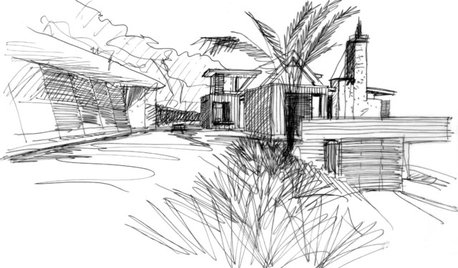
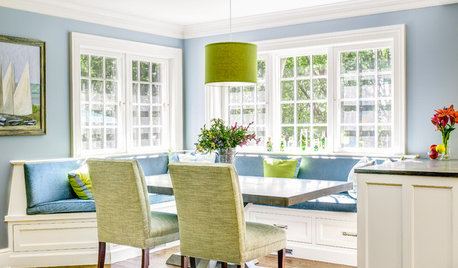
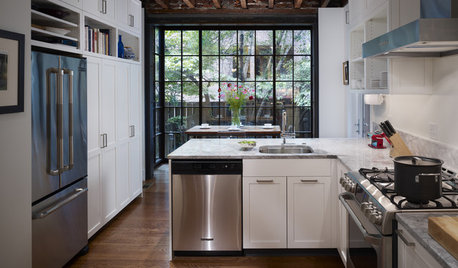



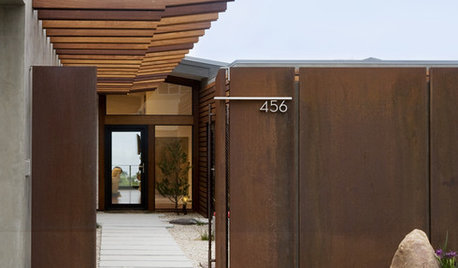
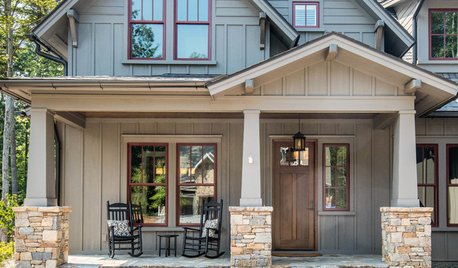
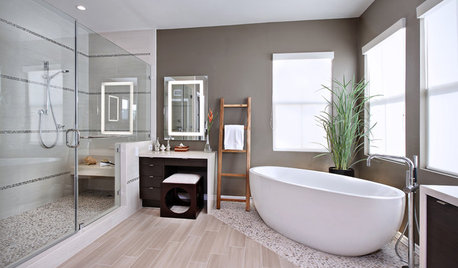









Charles Ross Homes